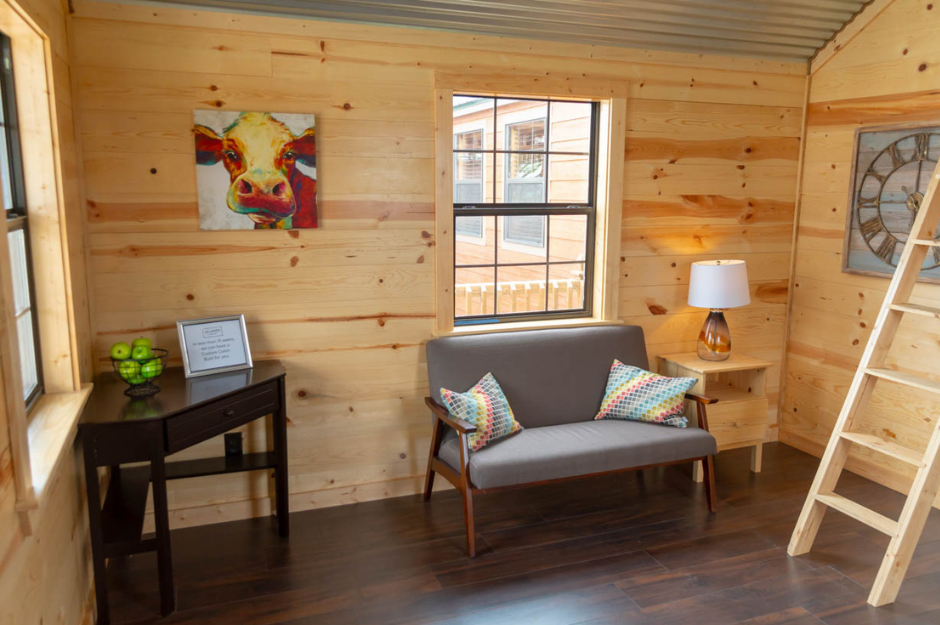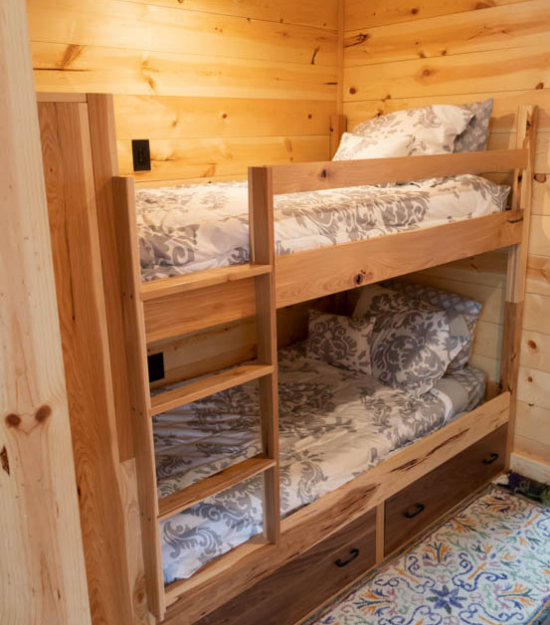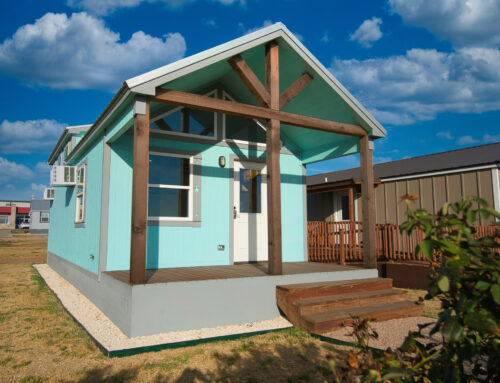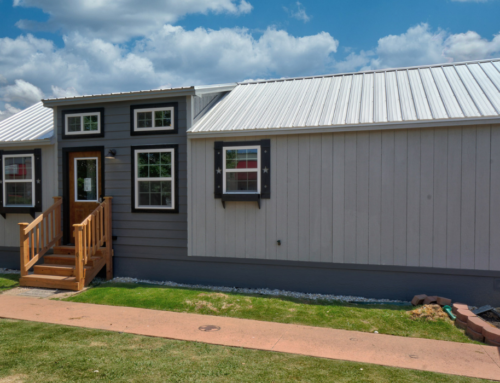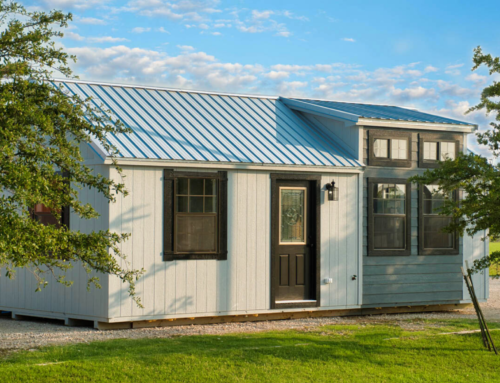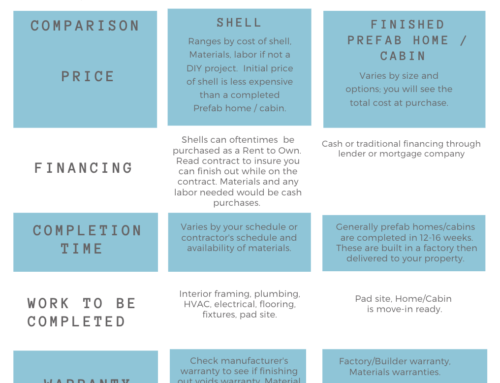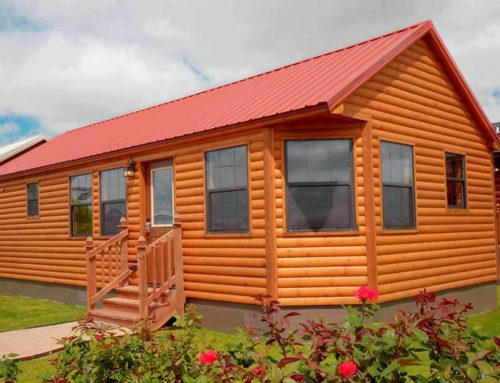Generally speaking, all tiny homes have one thing in common: they’re tiny. There is huge variation when it comes to materials, design, layout, use, size, and more. But, one of the biggest differences has to do with their foundations: is the home anchored to the ground, or is it on wheels? Today we are going to be going over tiny homes on wheels vs stationary tiny homes and which may be better for you based on your goals.
THOW: Tiny Home on Wheels

Tiny homes on wheels, or THOW, have grown in popularity in recent years due to the variety of benefits that they bring to the table. The most obvious of which is the fact that you can take your home with you wherever you go. However, tiny homes on wheels aren’t for everybody. In addition to the benefits that they bring, there are also cons and complexities to consider. We’ll go through a detailed comparison here so you can narrow down your choice and find out what’s right for you.
Benefits of a THOW
The first benefit of a tiny home on wheels is obvious. These homes can essentially function as recreational vehicles (RV). They can be towed, depending on size, weight and the vehicle pulling them. Meaning that you can experience the comforts of home no matter where you are. Whether you travel for work, take frequent vacations, or just enjoy the flexibility and mobility that a tiny home on wheels can offer.
There is something unique and special about being able to take your entire home with you on the road. If your tiny home is RV certified, then you can truly take it anywhere you can take a recreational vehicle, meaning there are very few limits on where you can lay your head. In addition to mobility, tiny homes on wheels due to their smaller size, will use fewer resources such as electricity and will be easier to heat. Most THOW will have a limited electrical panel, like an RV, and will only pull a 50-amp or 100-amp service.
If you are constantly on the road, gas and vehicle maintenance can add up and end up negating these benefits, but that can vary wildly from person to person. When you have a tiny home on wheels, you won’t need to purchase property, which can be very expensive depending on your location. In some areas, a THOW that is under 399 sq feet can free you up from permits and some taxes if you have placed one one your land. Check with your current area for rules and regulations.
 Cons of a THOW
Cons of a THOW
Although tiny homes on wheels don’t require you to take zoning laws into account, there still are various legal considerations that you have to make when living in this type of home. Tiny homes on wheels are not legally considered to be structures, which frees you from legal restrictions that apply to conventional homes, but what these homes are considered to be can vary depending on where you are. Oftentimes, the status of your tiny home will be in a sort of legal gray area. This can cause difficulty when you are trying to stay somewhere that recognizes your home differently from where it was built or originally bought.
Another downside to a tiny home on wheels is that you have to deal with maintaining both a home and a vehicle. We all know that our homes experience wear and tear, and our vehicles even more so. If your vehicle malfunctions in an inconvenient scenario, it can be harder to find help, and can be a bigger inconvenience if you are also relying on your vehicle for your home’s electricity.
Every Ounce Counts on the Road
Although it is a small, stand-alone consideration, we also need to mention that trailers have weight limits which will apply to your home. If you build your home to be towed, you must respect the weight limit that your vehicle is able to tow and that the trailer is able to hold, or else you can experience serious problems and safety issues. This means you have to be able to weigh your home and keep track of its weight throughout your ownership, especially if you foresee any purchases or modifications that would significantly alter its weight.
Overall, these cons are to be expected from a tiny home on wheels and apply to most recreational vehicles as well. If you are ready to commit to living in a tiny home and want to have the huge benefit of constant mobility of your entire home with you, then these cons may be a small price to pay for that convenience.
Benefits of a Stationary Home
Stationary tiny homes tend to offer a lot more flexibility in building options while forfeiting the mobility. They can provide more design flexibility as well as more space so that everybody can maintain their desired level of privacy. In addition to this, large families can live in stationary tiny homes that are effectively tiny for them, although they may be close to a small or regular-sized conventional home. If you have eight children, a tiny home on wheels may be possible, but a stationary home will definitely be easier!
Although you won’t be mobile, you do still have many options when it comes to a stationary home. Stationary homes will have a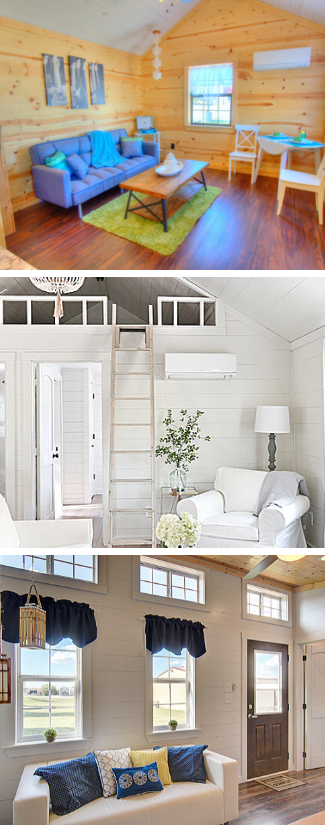
There are still legal restrictions you will have to learn regarding a stationary home, which can still be fairly complicated, they will be more consistent than with a home on wheels because you are staying in one place. So, you will still have to learn about zoning and housing laws that dictate material and construction types, foundation types, electrical regulations, land and soil restrictions, and more. But, once you have everything in place, you are unlikely to have to deal with this again unless the laws change. This makes your legal status markedly simpler than it does with a tiny home on wheels.
Space to Grow
Stationary tiny homes tend to offer a lot more flexibility in building options while forfeiting the mobility. With a stationary tiny home, you can have yard space, additional storage structures, and more options if you want to add to your home. Because a stationary home will be built on a plot of land, you can dictate how big your home can grow, how much space you’ll have in your yard, and so on, meaning that you even have the option of building a tiny home on a large plot, leaving you room to take care of animals or have a large garden.
Cons of a Stationary Home
Stationary homes come with many of the same cons that conventional homes have. You are restricted to one location, you will have to pay a property tax, you do not have as much of a choice about the neighborhood that you end up in and you cannot simply take your home with you if your area changes over time and does not suit you anymore. Some of these, like stability in one area of land, can also be considered positives of stationary homes, so it really depends on what you are looking for and what’s most important to you.
So Which is Better?
When it comes to comparing tiny homes on wheels and stationary tiny homes, there is no clear answer as to which is better. Rather, it depends on what you want and what you find most important. As with most things in life, there are pros and cons to each, and which one is right for you depends on which cons are less significant and which pros outweigh them.
In general, if mobility is one of the most important things for your lifestyle or your intended use of your home, a tiny house on wheels will be a great choice. Although they do require maintenance and have their own unique complexities. The thousands of people living in these homes every day are a testament to the fact that they are not a burden and not a liability, but rather a source of flexibility and freedom. If you are happy with where you live, need a bit more space, or just do not find mobility important to your lifestyle, then a traditional, stationary tiny home will provide you with everything you need. Either way, the main thing for you to consider is what is most important to you, your lifestyle, and your family.
Whichever you decide we would love to help you get started on your tiny home project give us a call at 817-409-6513 or schedule an appointment with us today!

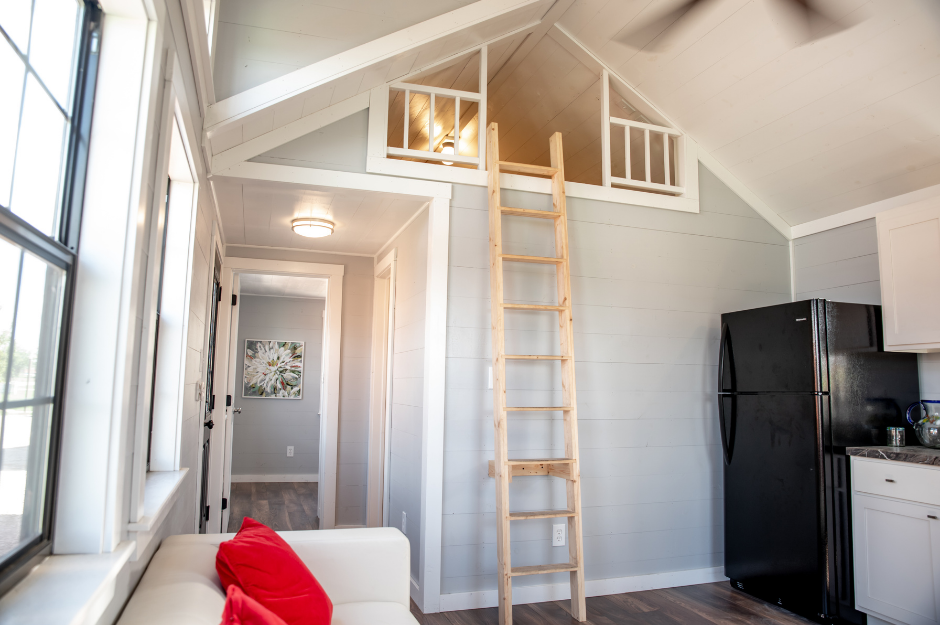
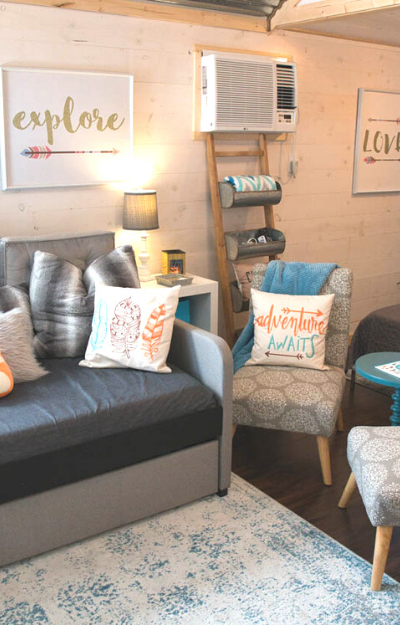
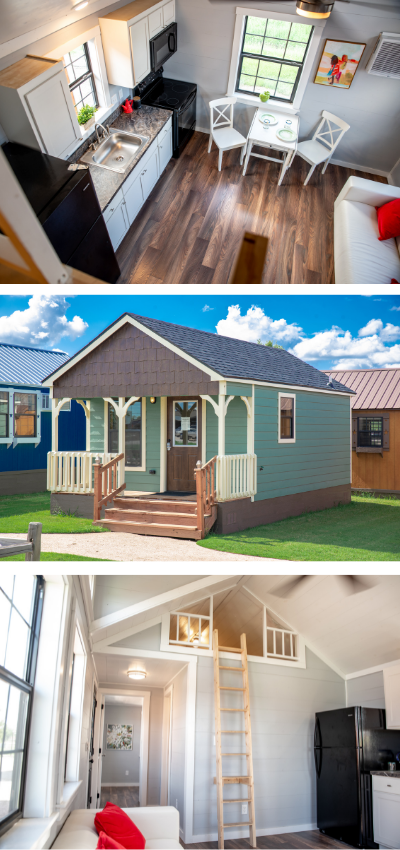 Cons of a THOW
Cons of a THOW